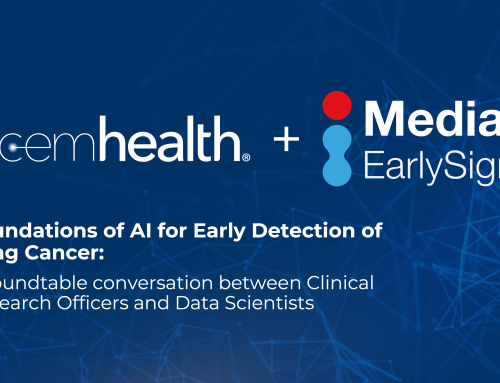
AI for Cancer Detection: A New Dawn in Healthcare
In an era where cancer continues to pose monumental challenges to global health, the call for more effective, timely screening practices has never been louder. Colon, lung, and breast cancer form a triad of threats that have maintained their grip on populations worldwide, crossing socio-economic and psychological boundaries.
The potential of Artificial Intelligence (AI) in revolutionizing the early detection and treatment of these cancers is becoming more apparent. March, recognized as Colorectal Cancer Awareness Month, reminds us of the pivotal role screenings play in not just catching cancer early but in dramatically enhancing patient survival rates and quality of life.
The Present Scenario
Despite the proven efficacy of screenings like colonoscopies, mammography, and low-dose CT scans in early cancer detection, the United States faces a significant bottleneck. The scarcity of resources—be it the overburdened endoscopy suites or the limited availability of radiologists for timely mammogram interpretations—hampers our battle against these maladies.
Moreover, the dismal rates of lung cancer screenings, especially among those eligible under the United States Preventive Services Task Force (USPSTF) guidelines, underscore the urgent need for innovative solutions. [1]
AI Will Change the Game
Enter clinical AI. By leveraging existing patient data, AI-driven solutions can pinpoint individuals at a statistically higher risk of developing cancer, thus enabling extra encouragement from their primary care providers to undergo screening. In the context of population health efforts, this approach yields more effective screening programs. It offers a method for improving the success of such programs despite high demand and narrow clinical bandwidth.
The integration of AI in the healthcare landscape is not merely about overcoming systemic challenges—it represents a profound pivot toward more personalized, proactive medical interventions. This paradigm shift, from reactive to anticipatory care, is emblematic of the transformative potential harbored by AI.
Advancing Clinical AI for Cancer Detection
The journey of clinical AI from theory to practice in cancer care is marked by notable advancements. These sophisticated algorithms excel in identifying cancers early, before patients experience symptoms, when interventions can be most effective and financially sustainable.
One AI solution identifies patients with colorectal cancer risk at 8-10x the rate of the general population. Another flags patients with almost 5x the typical lung cancer rate – even within a population of 20 pack-year smokers. A third AI solution, FDA approved, reads screening mammograms and highlights likely breast lesions for busy radiologists, improving accuracy with the potential of increased efficiency.
The Ethical Compass
This novel path is not without its hurdles, though. The uneven distribution of screening resources, especially in underprivileged areas, presents a formidable challenge. Furthermore, ensuring these AI tools benefit all communities equitably requires addressing infrastructural, cultural, and financial barriers head-on.
As we chart this course fueled by AI, maintaining an ethical compass is paramount. Mitigating risks associated with overdiagnosis, preserving patient data privacy, and eliminating biases in AI algorithms are essential to ensuring these innovations serve the greater good without exacerbating existing health disparities.
Conclusion
The dawn of AI in medical science heralds a new chapter in early cancer detection, a pillar of global population health efforts. These solutions set the stage for breakthroughs that promise not just longer lives, but better ones. As we honor colorectal cancer awareness this March, let’s pursue innovations that can eliminate cancer as a major health threat.
By fostering collaboration among healthcare providers, technologists, and policymakers, we can see a path towards making early and equitable cancer detection a reachable goal for all.
